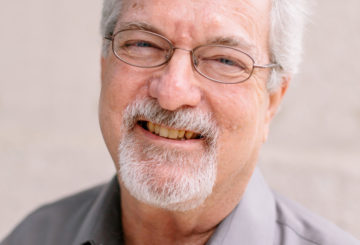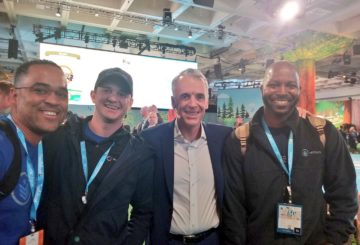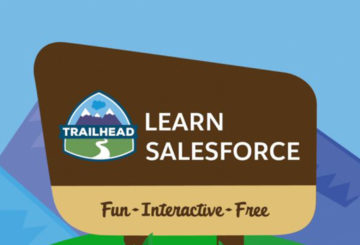US Army / Army Reserves 1998 to 2002
Salesforce Consultant Spring Ventures
Why did you join the military?
I joined the Army to be a stable provider for my family and for better employment prospects when I got out.
What were your role and your responsibilities while you were serving?
I chose to be an Information Systems Analyst so that I could gain meaningful work experience while enlisted. I also volunteered to be a Paratrooper to demonstrate that I was willing to go the extra mile to do my part as a soldier. At each of my duty stations I wound up in charge of various computer related tasks such as server backups and administration as well as servicing, repairing, and even building new computers where needed.
What are you most proud of?
I am most proud that I spent nearly every day of leave I had with my son and extended family. My proudest military achievements were earning my jump wings and later representing my unit at the 82nd Airborne Division’s Division Marksmanship Competition.
What is the one thing you miss about your time in the military?
The things I miss the most about my time in the military are the specific friends I made and seeing them on a regular basis, but Merivis feels like my most recent assignment where I have been able to make new friends I have common experiences with and continue to get to see on a pretty regular basis.
Tell me about the path you took to become a military spouse?
My wife joined the Army Reserve just after I enlisted in the US Army. We did not plan it this way, but my wife and I wound up assigned to the same unit at the same time during our Advanced Individual Training (my course was several weeks longer than hers).
What are some of the challenges you have faced in your career as a result of your role in a military family?
As newlywed soldiers there were many challenges, interacting with each other while also dealing with the unique stresses of AIT.
Where did you grow up, what kind of family did you come from?
I grew up in Northwest Missouri and come from a family with strong military traditions on both sides of my extended family. My grandfather (USMC – WWII, Air Natl Guard), father (Army Reserves, ANG), one brother (ANG), three uncles (one Army, then all ANG), and two cousins (both ANG) all served before me.
If I hadn’t been medically discharged I likely would have served some time in the local Air National Guard unit as well.
What challenges or blessings stand out from your history?
The instability of the civilian job market was a particular challenge to me coming out of the military. In my first 10 years out of the Army I was laid off three times as the employers I worked for failed to renew government contracts, off-shored call centers, or consolidated businesses and laid off staff.
How did you find Merivis? What about the program made you join?
A friend and coworker who knew Hector and Kate from previous work told me about Merivis because she knew I was a veteran. I joined because my employer used Salesforce and I felt that by learning more about it I could help them get more out of the platform.
What is your #MerivisMoment?
My Merivis Moment was after my 5th Salesforce Certification when I still hadn’t found the right fit to tempt me to leave my comfort zone. I reached out to both Stephanie Herrera and Kate Perez for advice about how to respond to an opportunity that included an undesired relocation. Stephanie encouraged me to believe in my own value, and Kate advised that I set terms I would be happy with, even if it might cost me the offer. The idea was that there would always be other jobs, but if I accepted changes I did not want, then “winning” the job still would not be a victory.
My terms were accepted allowing me to work 100% remote with an awesome team and I love doing what I do.
What are your career goals now that you are Salesforce certified?
I want to continue working on a deeper understanding of Salesforce so that I can help more Saleforce users (organizations and the people that work for them) get as much out of the platform as they possibly can. And if I can help some places I feel good about and make a nice living for my family, that’s all the better.
What is one skill or value military and/or military spouses have that would benefit a hiring organization?
Veterans and veteran spouses have demonstrated that they can finish something and that they can fit in as a part of something bigger than themselves to make a contribution.
Sum up your Merivis experience in just one word.
Rewarding.
If you could give one piece of advice to new students going through the Merivis program what would that be?
Do the pre-work before your onsite training class starts, but if you don’t finish beforehand, you should still concentrate on getting the most you can out of it and spend all the time you can with the volunteers, instructors, and fellow students that will be around that cohort, it is a golden opportunity to make connections and build some memories so don’t waste any of it, you can (and should) get back to Trailhead afterwards.
How has your life and/or career changed as a result of the Merivis program, resources, and community?
I have effectively doubled my salary since taking my first Merivis cohort and I now work 100% remotely with a very high level of autonomy, flexibility, and respect. Being valued by my employer is not something new, but the tangible rewards afforded to me for getting things done for someplace with much to be gained by doing things efficiently is very fulfilling.
Of the people you met in the military, who had the biggest impact on you and why?
(Then Staff Sergeant) Master Sergeant Gary Eaker, the best NCO I ever met. He is a father of 13 (all by the same wife, bless her), aircraft pilot, guitar player, Youth Pastor at Church, Licensed Nurse, and all-around computer guru at the 44th Medical Command’s G-6 automation shop (who eventually went back to being a Nurse for the Army).
Sergeant Eaker taught me to actually enjoy working with computers and not just work on them begrudgingly, it takes much of the pain out of work if you enjoy what you do.
What’s something that you get out of Merivis that you don’t find anywhere else?
Merivis gives me ongoing opportunities to meet new people just beginning their journey with learning about Salesforce and what they can do for themselves and others with it.
A lot of people talk about community when we talk to them about Merivis. What do you like about the Merivis community?
I really appreciate the energy, enthusiasm, and supportive nature of all the people I know in the Merivis community. It is very uplifting to be around people who see a path to providing great value to the many companies and organizations that utilize Salesforce and realize that there is plenty of room for us all to succeed at this. It is a ton of fun to be part of something we can all win at together.
How would you describe the people you’ve connected to through Merivis?
Positive, motivated, fun to know because we support each other and there is plenty of room for us all to succeed at this.
If you could add something to Merivis, what would it be?
A full-time campus where there are classes five days a week and Merivis students and alumni can come to network, learn, and grow anytime.
Connect with Merivis Graduate, Daniel Carpenter on Linkedin



